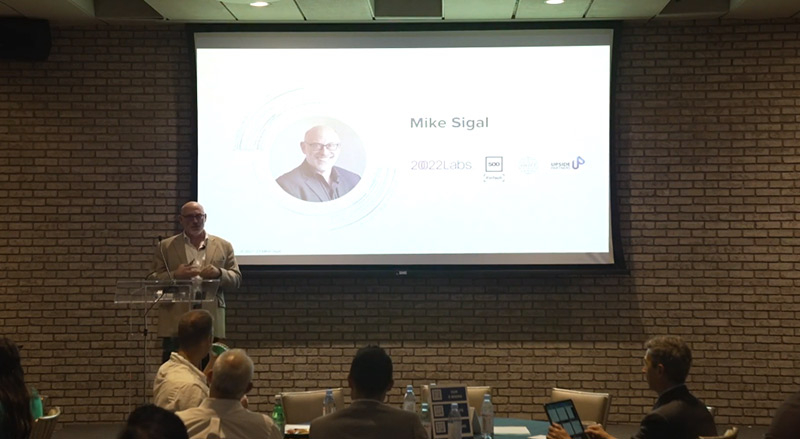During the Unbounded Capital Summit in New York (21 September 2023), Mike Sigal, who acts as an Advisor to Unbounded Capital gave a presentation on ‘What VCs really think’. With his vast experience in entrepreneurship, fintech, and venture capital (VC), he provides young entrepreneurs with valuable insights, an overview of how VCs work and insider advice.
During this presentation, Sigal also encouraged the audience to ask questions, which led to insightful conversations during and after the presentation.
Key questions that VCs ask
He discusses the typical VC model: VCs aim for outsized growth, secure funding from limited partners (LPs), invest in startups, and generate returns to raise more funds. Sigal points out that this is the best-case scenario, but usually VCs face a difficult challenge, as most VC investments fail to yield returns.
Therefore, VCs have devised to find investments that help them raise the next fund. Sigal explains that when VCs evaluate a startup their perspective is reflected by the key questions:
- Can the share I buy return my entire fund?
- How much work will the startup take?
- Can the CEO raise subsequent rounds?
- Will it look good in quarterly reporting to investors?
- Will it support my next fundraiser?
While most points are more or less clear, Sigal emphasises that the CEO’s competence to raise funds should not be underestimated. Sigal even presents the skills of a CEO as the top priority for VCs. While in general, the focus is on having put together a good team, for Sigal the entire project should be measured by a competent CEO:
‘If you can’t swagger in front of a VC and convince them to give you money, you’re done. If you can’t go out and win customers, you’re done. If you can’t recruit great people, you’re done. CEOs have to be able to sell. And that’s what VCs are trying to evaluate.’
Venture capitalism: Masquerading momentum investment as fundamental investment
Sigal remarks that another aspect that he is focusing on in his presentation might be controversial. He shares that from his perspective, all early-stage investing is essentially momentum investing masquerading as fundamental investing. For him momentum in the market does not define what individual company a VC is looking to invest in, but rather in what sector it is going to invest in. To illustrate what momentum means, he showcases that ‘crypto’ is the most toxic word in venture capital investment, which can be characterised as a momentum problem.
The learning that startups can take away from this is that founders need to be able to present a compelling narrative about the market momentum when seeking investment. Sigal illustrates a good example from a startup that raised funds in the sector of e-commerce fraud prevention.
In his example, the founders could make a compelling point about why VCs should invest in him now during the pandemic, in which e-commerce grew faster in the last 6 months than in the ten years before that time. The founder could promise to help a $100 billion market, which could help retailers save up to 30% on fraudulent activities by deploying AI solutions. Sigal advises entrepreneurs not to focus solely on technology but to demonstrate a narrative and showcase how their equity will gain value quickly.
Optimism about Unbounded
At the end of his presentation, Sigal expresses why he is optimistic for Unbounded’s success, despite a recent 85% decrease in VC investment. He highlights two key areas: financial services for emerging markets, aiming to reduce payment costs, and the untapped potential in the financial services sector, which is currently only 2% of a $12 trillion market.
Sigal emphasises the opportunity for growth, especially in digitalising the $98 trillion financial assets market. He references the success of online gaming during COVID-19 and stresses the importance of real-time payments for governments and banks to keep up with the digital economy.
